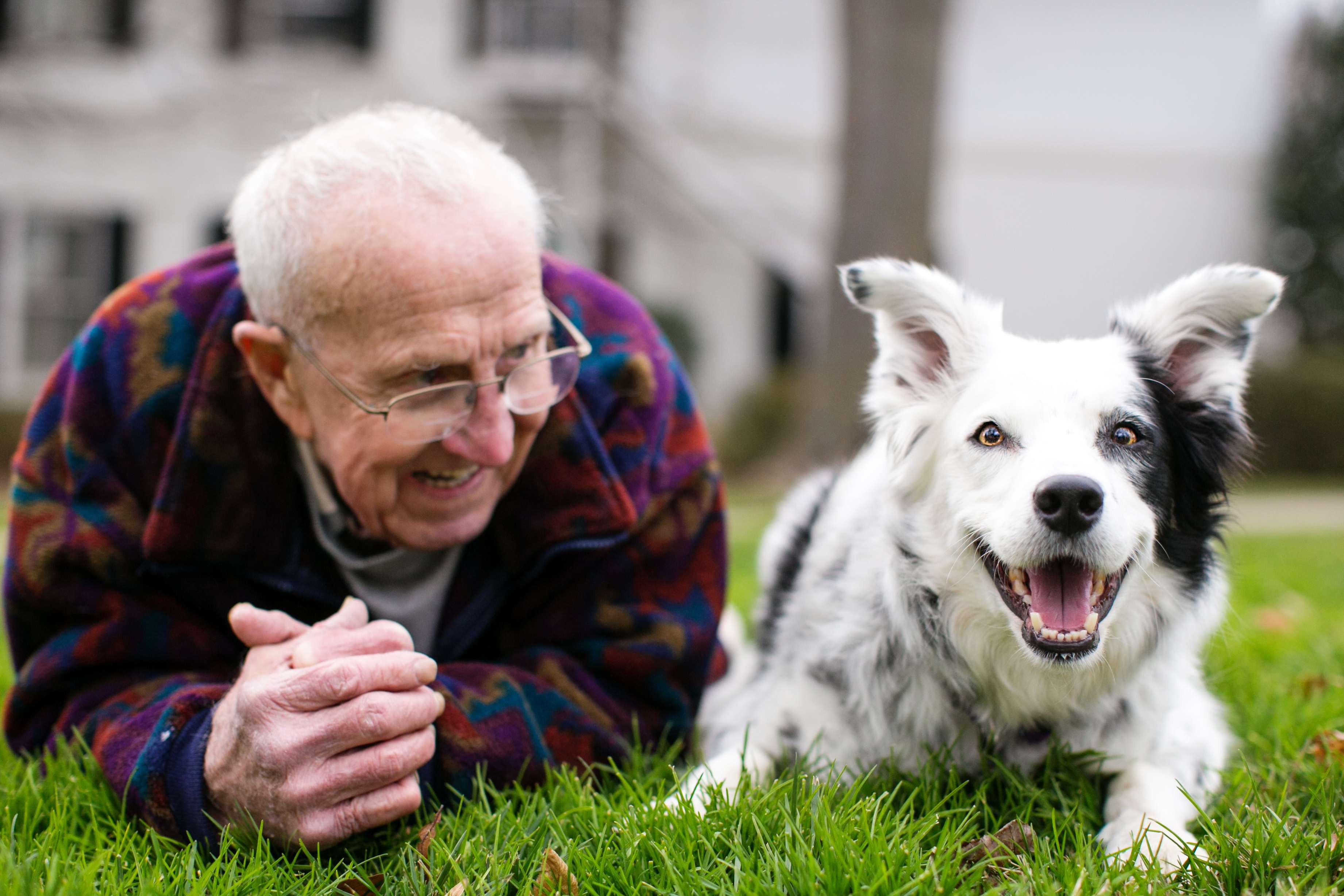How Do Dogs Learn Words? Just Like Kids (Op-Ed)


Brian Hare is an Associate Professor and Vanessa Woods is a Research Scientist in Evolutionary Anthropology at Duke University. They founded Dognition, a web based service that helps find the genius in your dog. This post was adapted from their New York Times Bestseller "The Genius of Dogs" (Dutton Adult, 2013). Hare and Woodscontributed this article to LiveScience's Expert Voices: Op-Ed & Insights.
A dog learning a thousand words is nothing to sniff at. But what is truly remarkable about Chaser, the border collie who has taken the world by storm, is how she learns words.
Chaser makes inferences in a similar way to human children. When Chaser played the game that tested the same ability in the citizen science project Dognition, not surprisingly, she was off the charts. (Can your dog make inferences like Chaser? See the game.)
Besides dogs, dolphins, apes and parrots can also learn an impressive number of words. What is special about children is that if you show a child a red block and a green block, then ask for "the chromium block, not the red block," most children will give you the green block, despite not knowing that the word 'chromium' can refer to a shade of green. The child inferred the name of the object.
John Pilley, Chaser's owner and author of the new book Chaser: Unlocking the Genius of the Dog Who Knows a Thousand Words (Houghton Mifflin Harcourt, 2013) taught Chaser words in a similar way. Pilley placed a new object Chaserhad never seen before in a different room with several of her toys that she knew by name. Then Pilley asked Chaser to fetch a toy using a new word she had never heard before, like 'Fuzzbee'. Pilley did this with dozens of new objects and words. Just like children, Chaser inferred that the new words referred to the new toys.
Over three years, Chaser learned the names of over 800 stuffed toys, 116 balls, 26 Frisbees, and over 100 plastic objects. There were no duplicates, and all the objects differed in size, weight, texture, design and material. To be exact, Chaser learned the names of 1,022 objects. She was tested every day — and just to be sure she was not 'cheating' by getting hints from anyone, every month, she had to do a blind test where she had to fetch objects in a different room, out of sight of Pilley and trainers. Even after Chaser learned over 1,000 words, there was no decrease in the rate at which she learned new words. [Do Animals Know Who they Are? (Op-Ed )]
Recently, Chaser took part in the Dognition citizen science project through a game that tested her ability to make inferences. Pilley hid a toy in one of two cups. Then, he showed Chaser the empty cup. Chaser had to infer that since the cup was empty, the toy must be in the other cup. This game is especially difficult for most dogs because they are often confused by conflicting social cues. By lifting up the empty cup, Pilley was actually drawing attention to it, and Chaser had to resist the impulse to follow Pilley's social cues. Only 8 percent of dogs correctly made the inference, like Chaser, every time. (How would your dog compare to Chaser?)
Get the world’s most fascinating discoveries delivered straight to your inbox.
Border collies have a reputation for being smart, and another dog, Rico, who first demonstrated word learning, is also a Border collie. However, in the Dognition database, Border collies are not significantly better than other dogs at solving the inferential reasoning task. And neither Pilley nor Rico's owners believe their dogs are unusually gifted. Chaser, for instance, was randomly selected from a litter for the purpose of training her to participate in the studies. It would be quite a coincidence if the very first dog chosen just happened to break the record for word learning.
The question is whether these skills are somehow special to a handful of dogs, or if most dogs have them. Rather than long, repetitive sessions of 'sit' and 'stay', perhaps dog lovers should raise the bar. Our dogs probably understand more than we realize.
What is the most surprising word your dog knows? Tell us below . . .
You can try Dognition for free here. The authors' most recent Op-Ed was "Female Dogs Are Better Navigators." The views expressed are those of the author and do not necessarily reflect the views of the publisher. This version of the article was originally published on LiveScience.



